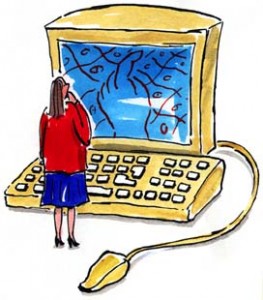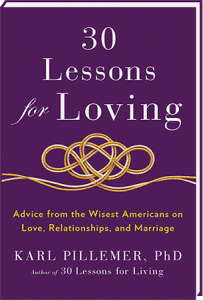 With the 2016 presidential election only one week behind us, social media is still filled with difference viewpoint about President-elect Donald Trump. There are videos, news articles and essays that add new details to the glut of information. But does any of it make a difference? [Read more…]
With the 2016 presidential election only one week behind us, social media is still filled with difference viewpoint about President-elect Donald Trump. There are videos, news articles and essays that add new details to the glut of information. But does any of it make a difference? [Read more…]
Proven ways to change someone’s mind
Is science reliable?
 Here at EBL, we’re written before about the pitfalls of science reporting in popular media. Even well-researched, comprehensive scientific reports often draw conclusions that we later learn are inaccurate. [Read more…]
Here at EBL, we’re written before about the pitfalls of science reporting in popular media. Even well-researched, comprehensive scientific reports often draw conclusions that we later learn are inaccurate. [Read more…]
An evidence-based look at a football scandal?
 If you pay any attention to sports, you have likely heard about the football scandal that erupted last year when the Indianapolis Colts accused the New England Patriots of deflating footballs to give their quarterback, Tom Brady, an unfair advantage. [Read more…]
If you pay any attention to sports, you have likely heard about the football scandal that erupted last year when the Indianapolis Colts accused the New England Patriots of deflating footballs to give their quarterback, Tom Brady, an unfair advantage. [Read more…]
Are medical talk shows credible?
 When you turn on the TV, pick up a newspaper or flip through a magazine, you’re likely to come across some advice on how to improve your health. Americans are hungry for “magic bullet” fixes to their health problems – whether it’s obesity, toenail fungus, or back pain. Our desire for medical advice has led to the rise of medical talk shows, where medical doctors offer health advice. But do these shows offer sound advice? [Read more…]
When you turn on the TV, pick up a newspaper or flip through a magazine, you’re likely to come across some advice on how to improve your health. Americans are hungry for “magic bullet” fixes to their health problems – whether it’s obesity, toenail fungus, or back pain. Our desire for medical advice has led to the rise of medical talk shows, where medical doctors offer health advice. But do these shows offer sound advice? [Read more…]
The science of cooking
 As gardens and local farms are in full swing this month producing vegetables of all sorts, I’ve found myself revisiting America’s Test Kitchen to make sure I’m using evidence-based techniques in my kitchen. I thought it’d be a great time to revisit this post about this culinary research center. [Read more…]
As gardens and local farms are in full swing this month producing vegetables of all sorts, I’ve found myself revisiting America’s Test Kitchen to make sure I’m using evidence-based techniques in my kitchen. I thought it’d be a great time to revisit this post about this culinary research center. [Read more…]
Evidence-based soccer: How to treat hamstring strains
 Over the past month, much of the world has been glued to the television watching World Cup soccer matches. I’m not typically a soccer aficionado, but I did catch a few games. One thing I learned about the sport this year is the increasing prevalence of hamstring injuries among soccer players.
Over the past month, much of the world has been glued to the television watching World Cup soccer matches. I’m not typically a soccer aficionado, but I did catch a few games. One thing I learned about the sport this year is the increasing prevalence of hamstring injuries among soccer players.
The systematic review: “A social movement”
 This blog was founded more than four years ago with the a focus on one key idea: Today, there more research available than ever before. So we set out to help readers separate the good scientific information from the bad. One great resource for that is the systematic review. [Read more…]
This blog was founded more than four years ago with the a focus on one key idea: Today, there more research available than ever before. So we set out to help readers separate the good scientific information from the bad. One great resource for that is the systematic review. [Read more…]
The evidence on climate change
 The theory that the earth’s climate is warming has been a highly debated topic in the media for more than a decade. Proponents of the theory point to evidence about melting polar ice caps and increased storm activity, while critics say there’s not enough data to know what’s happening over the long-term. But what does the evidence really say?
The theory that the earth’s climate is warming has been a highly debated topic in the media for more than a decade. Proponents of the theory point to evidence about melting polar ice caps and increased storm activity, while critics say there’s not enough data to know what’s happening over the long-term. But what does the evidence really say?
Why health journalism often gets it wrong
 Contradictory tips and strategies about how to improve our health fill the airwaves, magazines and newspapers year-round. Drink coffee; don’t drink coffee. Eat whole grains; avoid carbohydrates of any kind. Vitamin supplements are good for you; wait, no they’re not. All of these news stories claim they are based on “evidence.” So what’s the deal?
Contradictory tips and strategies about how to improve our health fill the airwaves, magazines and newspapers year-round. Drink coffee; don’t drink coffee. Eat whole grains; avoid carbohydrates of any kind. Vitamin supplements are good for you; wait, no they’re not. All of these news stories claim they are based on “evidence.” So what’s the deal?





